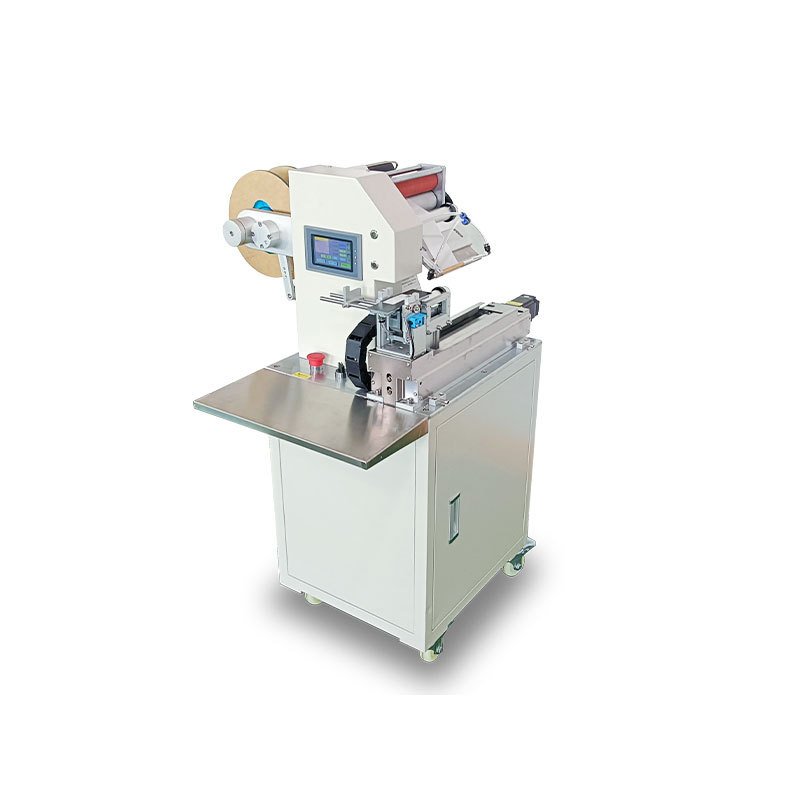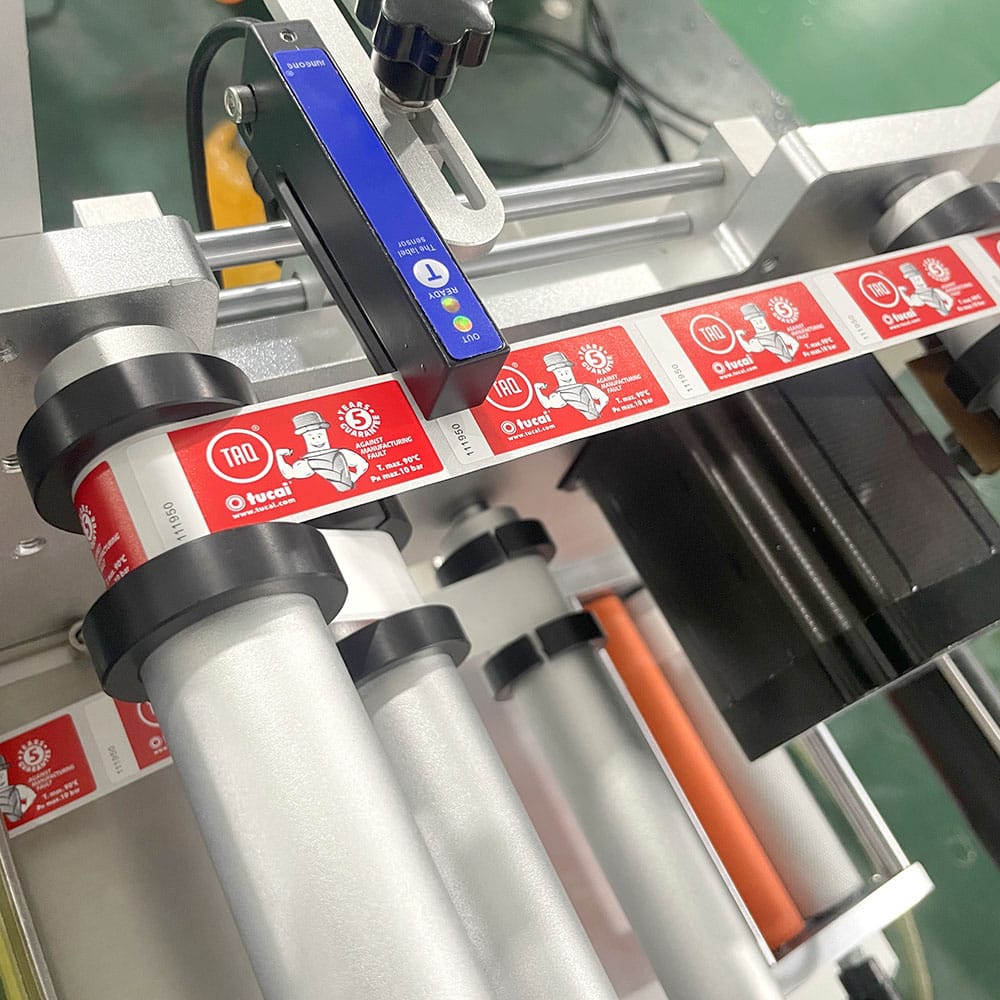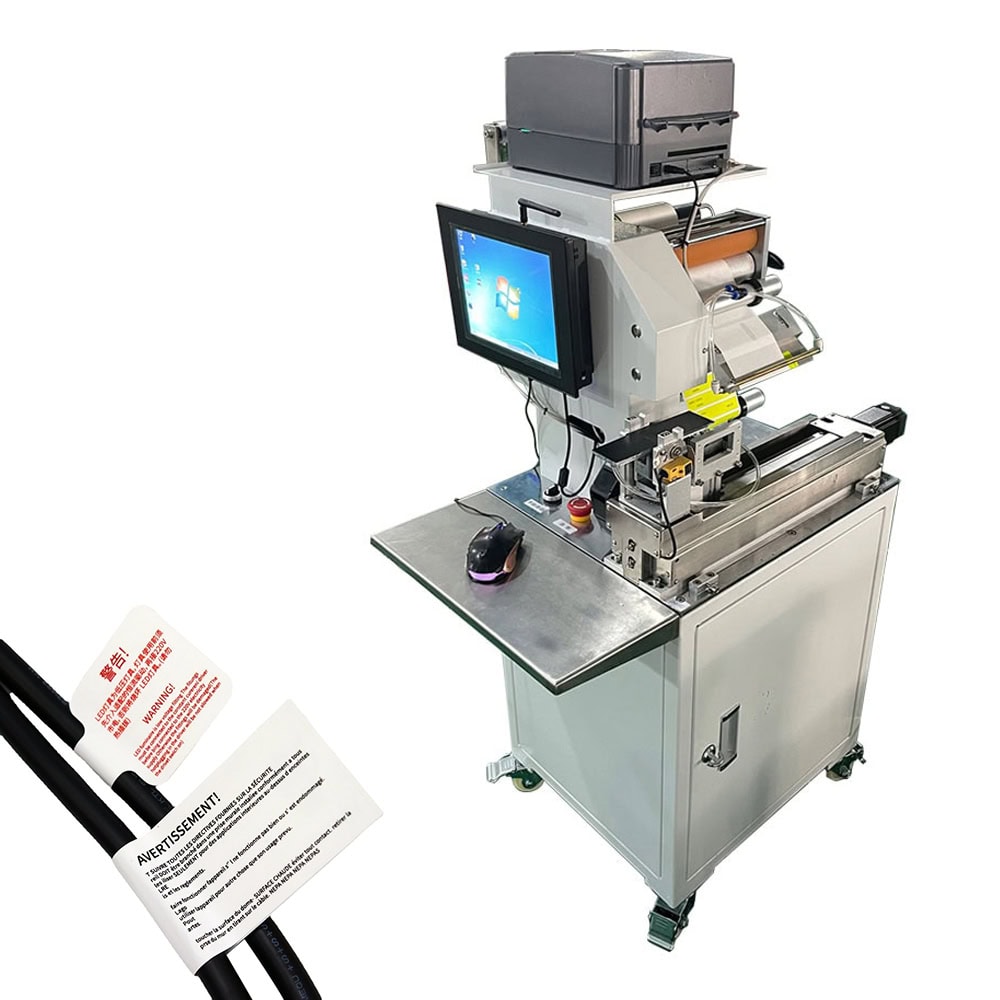Manual labeling is inefficient and prone to human error. This leads to costly mistakes. An automatic printing and labeling machine will fix this. It will make your process faster and more accurate.
Automatic printing and labeling machines are a must-have for modern production environments because they help you label things faster and more accurately. They save you money on labor. They give you more flexibility. They help you control quality.
Now, here are some of the benefits:
Increased Efficiency
Automatic labeling machines are going to make you more efficient because you’re not doing it by hand. People can only work so fast and so long. Machines can work really fast and all day long without a break. It’s going to make you more consistent and productive overall on your production line.
The other thing is, it gets rid of bottlenecks. In the world of food and phar- maceuticals, especially, speed is of the essence to meet market demand. Automatic labeling machines are the answer.
Improved Accuracy
Accuracy in labeling is critical for compliance, product identification, and customer satisfaction. Automatic labeling machines ensure that labels are applied with precision, reducing errors caused by misalignment or improper placement. Whether applying labels on bottles, boxes, or other containers, these machines maintain a high level of accuracy consistently.
This precision also ensures that all necessary information, such as batch numbers or expiration dates, is correctly displayed, which is crucial for industries regulated by safety standards and legal requirements.
Reduced Labor Costs
One of the most significant advantages of automatic labeling machines is the reduction in labor costs. Manual labeling requires a significant workforce, but automating the process reduces the need for manual intervention. Companies can redirect their workforce to other critical areas, minimizing the need for repetitive manual tasks.
By automating labeling processes, businesses save on staffing costs and reduce the risk of human error, resulting in long-term cost savings.

Enhanced Flexibility
Automatic labeling machines offer enhanced flexibility, allowing businesses to adapt quickly to varying product types and sizes. These machines are equipped to handle different shapes, sizes, and materials, making them versatile for a wide range of industries. With quick setup changes, manufacturers can switch between labeling different products without losing valuable production time.
This flexibility is essential for companies that produce multiple products or operate in markets where customization and rapid adaptation are necessary.
Consistent Quality
Consistency in label application is vital for brand reputation and product integrity. Automatic labeling machines ensure that every label is applied uniformly, eliminating variations caused by human error. Whether operating at low or high speeds, the machine’s precision guarantees that each label is placed exactly where it should be.
Maintaining consistent labeling across all products also enhances the professional appearance of goods and helps build consumer trust.
Better Integration with Production Lines
Automated labeling systems are designed to integrate seamlessly into existing production lines. They can work in sync with other equipment such as conveyors, packaging machines, and filling systems. This integration reduces the need for manual intervention, allowing for smooth and uninterrupted operations from start to finish.
Such synergy between machines enhances production flow, reduces downtime, and ultimately increases the output of the entire production process.
Faster Production Speeds
One of the primary advantages of automatic labeling machines is their ability to significantly increase production speeds. With the capability to label thousands of products per hour, these machines can handle high-demand production environments with ease.
By automating the labeling process, manufacturers can meet market demands faster without compromising on quality, resulting in quicker time-to-market and higher profitability.

Reduced Material Waste
Manual labeling often leads to errors that waste labels and packaging materials. Automatic labeling machines minimize this waste by applying labels with precision. The machine ensures that labels are applied correctly the first time, reducing the need for rework or reapplication.
This efficiency not only reduces costs but also supports sustainability efforts by minimizing material waste in production processes.
Easy Maintenance and Operation
Modern automatic labeling machines are designed with user-friendly interfaces and require minimal maintenance. Operators can easily set up and adjust the machine for different labeling tasks through intuitive controls. Additionally, these machines are built for durability and long-term use, reducing the frequency of repairs.
Periodic maintenance, such as cleaning and checking sensors, ensures the machine operates at peak performance with minimal downtime, keeping production lines running smoothly.
Enhanced Data Management
Some advanced automatic labeling systems come equipped with data management capabilities, allowing businesses to track and store labeling information. These machines can print variable data such as batch numbers, barcodes, and expiration dates, ensuring traceability and compliance with industry regulations.
This feature is especially valuable for industries such as pharmaceuticals, food, and electronics, where accurate record-keeping and traceability are vital for safety and legal compliance.
Conclusion
Automatic printing and labeling machines are the ultimate in efficiency, accuracy, and flexibility. You need these to be competitive in today’s manufacturing world.










